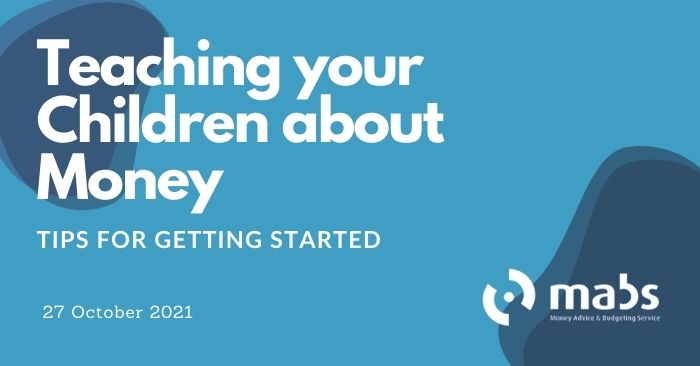Teaching your Children about Money

Do you remember your parents or grandparents talking about money when you were younger? We’ve asked around, but the common answer was no. It was rarely a topic that was discussed with children around! Things have changed a lot since then and we are now encouraged to discuss money openly and confidently with our children to help them learn.
Financial literacy is an important life skill that needs as much focus as reading, writing and looking after yourself. This means when your children go out into the world you can feel assured, they are prepared/ready to take on life’s challenges.
Start Early
Start teaching your children about money as soon as they can count. If you don’t feel confident enough to do this yourself, ask someone you know like a family member or friend. The earlier they start learning how money works, the more prepared they can be in the future.
If you bring your children shopping, whether it’s the weekly food shop or for clothes and shoes, explain your budget and your shopping list.
A good starting point during the weekly food shop is to give each child a euro and tell them they can buy what they want for that euro, this will get them thinking about their options and basic budgeting.
Think about how you talk about money around your children, and speak openly about concerns, if you hide the problems, your children might think that there’s something to be ashamed of.
Setting Small Goals
Help set them set small goals, to get them in the habit of saving for important things. Whether it is for an ice cream or treat and building up to toys and holiday spending money.
Give them a clear piggy bank, so they can see their savings build up. Then move to a post office or credit union account. They’ll feel a sense of accomplishment going to the post office or credit union each week/month.
If you start teaching your kids about money when they’re young, by the time you start giving them pocket money, they will have formed good habits and will know how to budget and save.
Break down the money jargon
Explain money jargon like credit cards and loans. Your children will likely overhear you talking about rent and mortgages or your credit card bill. When you take this out of context, your children see you tapping a card and getting products and services for seemingly nothing.
Show your children how money and financial services like a debit card work, this will help instil the value of money to them. Use this as an opportunity to correct any bad habits you might have that you don’t want to pass on to your children. Children are clever and pick up on things in a simple straightforward way we might take for granted. If they ask a question about something financial that makes you think about why you do it or if you could do it a better way, try it. You can then share the joy with your child that they’ve helped with the family finances.
Have any tips on how to teach your kids good money habits? Share your thoughts on our blog post!
You can call the MABS National Helpline on 0818 07 2000 Monday to Friday, from 9am to 8pm, WhatsApp 086 035 3141 or find the contact details for your local office.
Follow @MABSinfo on Twitter and Facebook and Instagram for further updates.




Facebook
twitter
Instagram